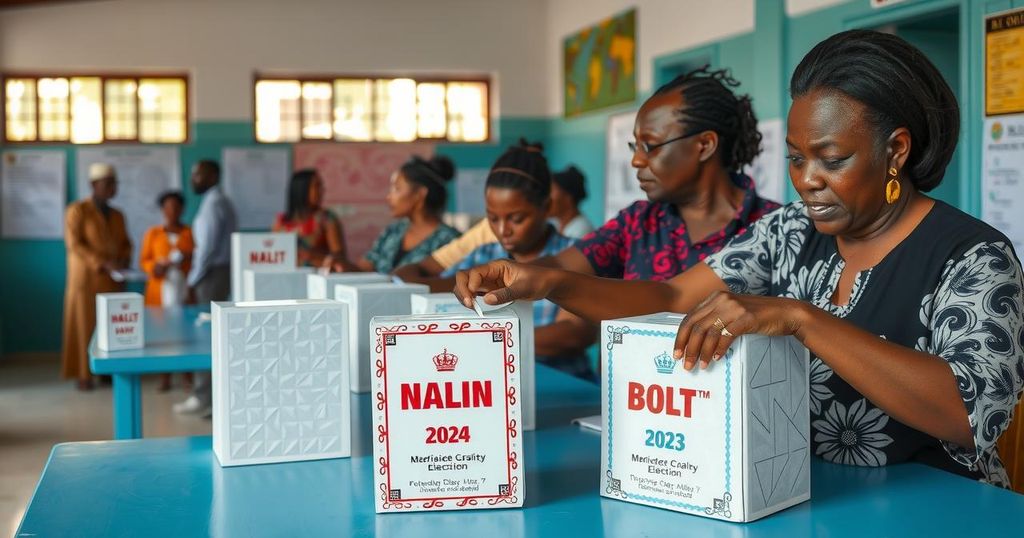Comoros Voters Head to Polls Amid Controversy and Political Tensions

Voters in Comoros are participating in parliamentary elections for the 33-seat legislature amid allegations of previous electoral irregularities. President Azali Assoumani, who has been in power since 1999, faces accusations of authoritarianism and nepotism with his son positioned for succession. Some opposition parties call for a boycott, while others opt to participate to expose regime flaws. Election results are expected by Friday.
Comoros is holding parliamentary elections to fill all 33 seats of its legislature, following the controversial re-election of President Azali Assoumani in the previous year. The opposition claims that the prior polls were riddled with serious irregularities, a charge the ruling party vehemently denies. With polling stations having opened on Sunday, approximately 338,000 registered voters will participate in the elections, which come after a three-year hiatus since the last parliamentary elections in January 2020. Nearly 100 candidates approved by the Supreme Court are vying for election amidst a politically tense environment, where Assoumani’s critics accuse him of authoritarianism and suggest he is grooming his eldest son to succeed him in 2029. Assoumani has maintained power since a coup in 1999 and has secured victory in three elections, recently endowing his son with significant government powers in 2024. Despite calls from opposition factions such as the Juwa party to boycott the elections, some parties have chosen to engage in the process. Hamidou Karihila, an opposition candidate, emphasized the importance of participating in the elections to expose the regime’s weaknesses and expedite its eventual collapse. Results from the election are anticipated by Friday.
The elections in Comoros reflect a significant moment in the archipelago’s ongoing political turmoil. Following President Azali Assoumani’s controversial reign characterized by allegations of autocratic practices, the upcoming parliamentary elections represent an opportunity for voters to express their political preferences. The opposition is divided on how best to respond to Assoumani’s regime, with some factions advocating for participation to shine a light on governmental flaws, while others consider boycott as a strategy to delegitimize the electoral process. The political landscape is further complicated by the image of Assoumani’s potential dynastic succession involving his son, which raises concerns about future democratic governance in Comoros.
As voters in Comoros head to the polls to elect a new parliament, the elections are overshadowed by a backdrop of allegations of past electoral misconduct and fears of growing authoritarianism. With approximately 338,000 registered voters and nearly 100 candidates contesting, the parliamentary elections will serve as a crucial assessment of public sentiment toward Assoumani’s government and its policies. The outcome remains to be seen, along with the potential implications for Comoros’s political future should Assoumani’s regime endure or face significant challenges from the opposition.
Original Source: www.muswellbrookchronicle.com.au







